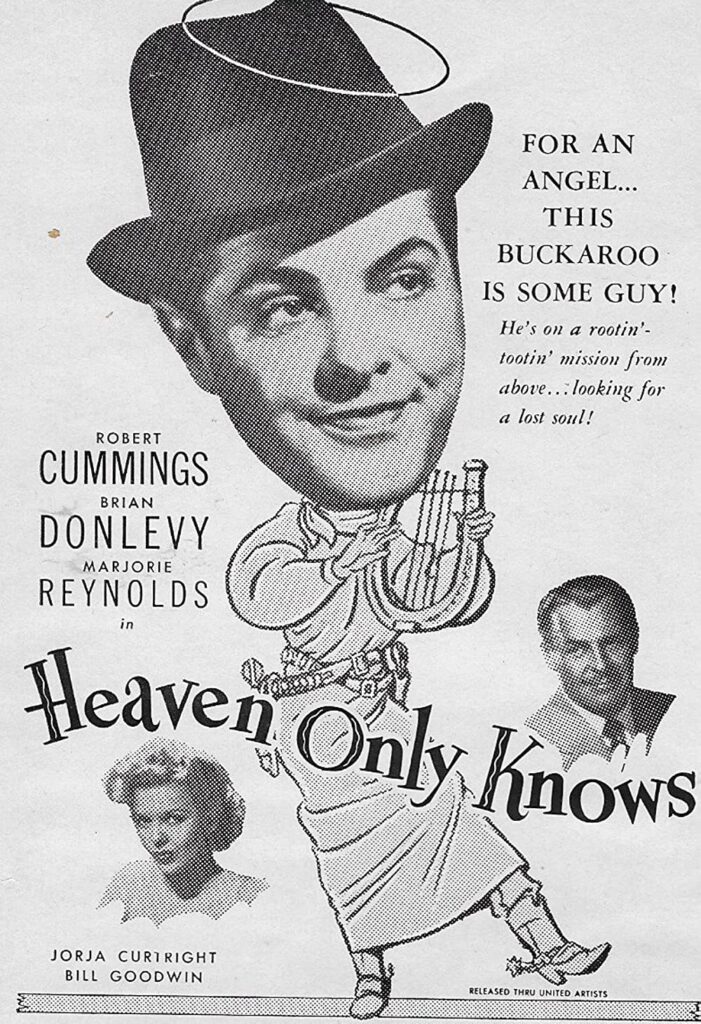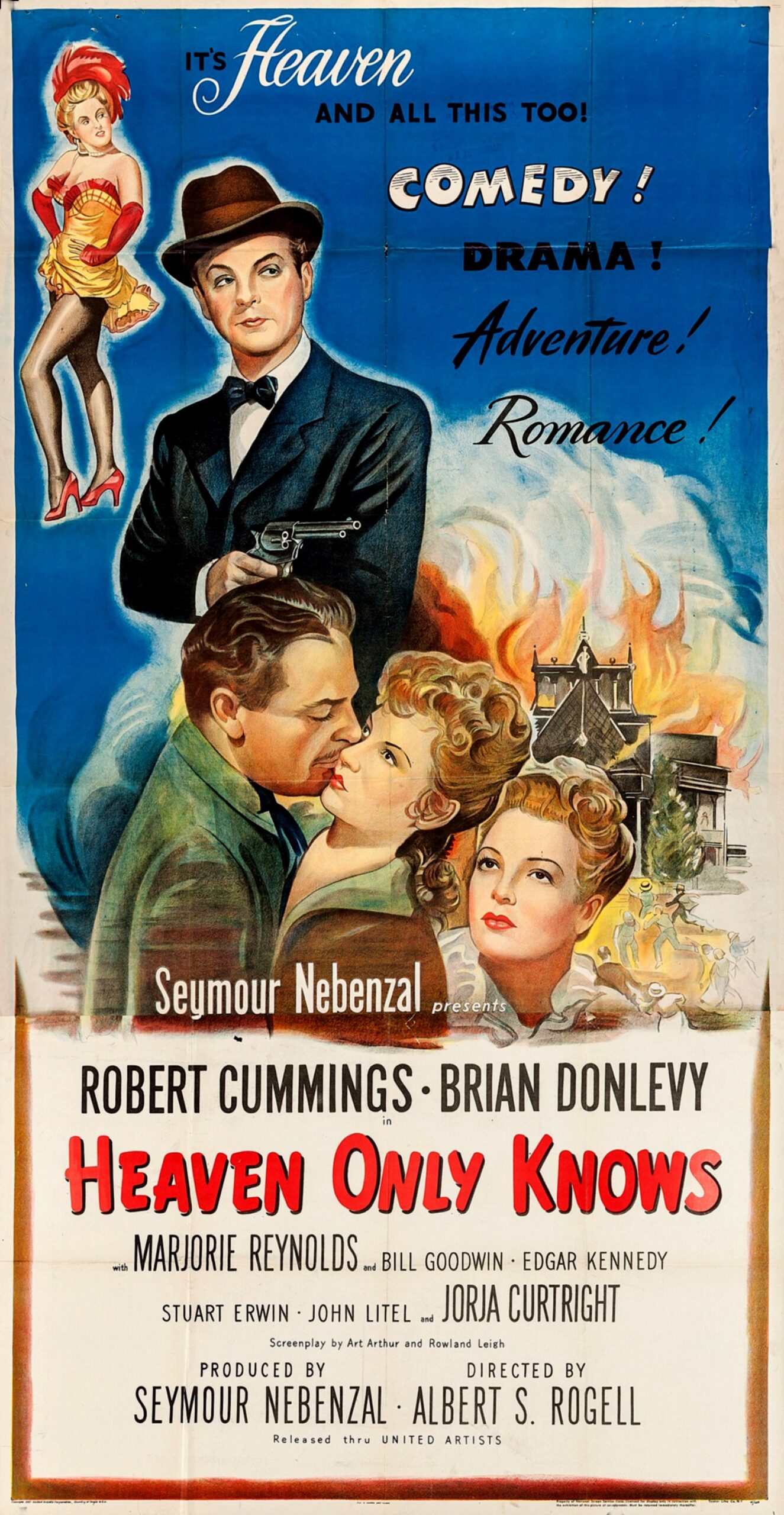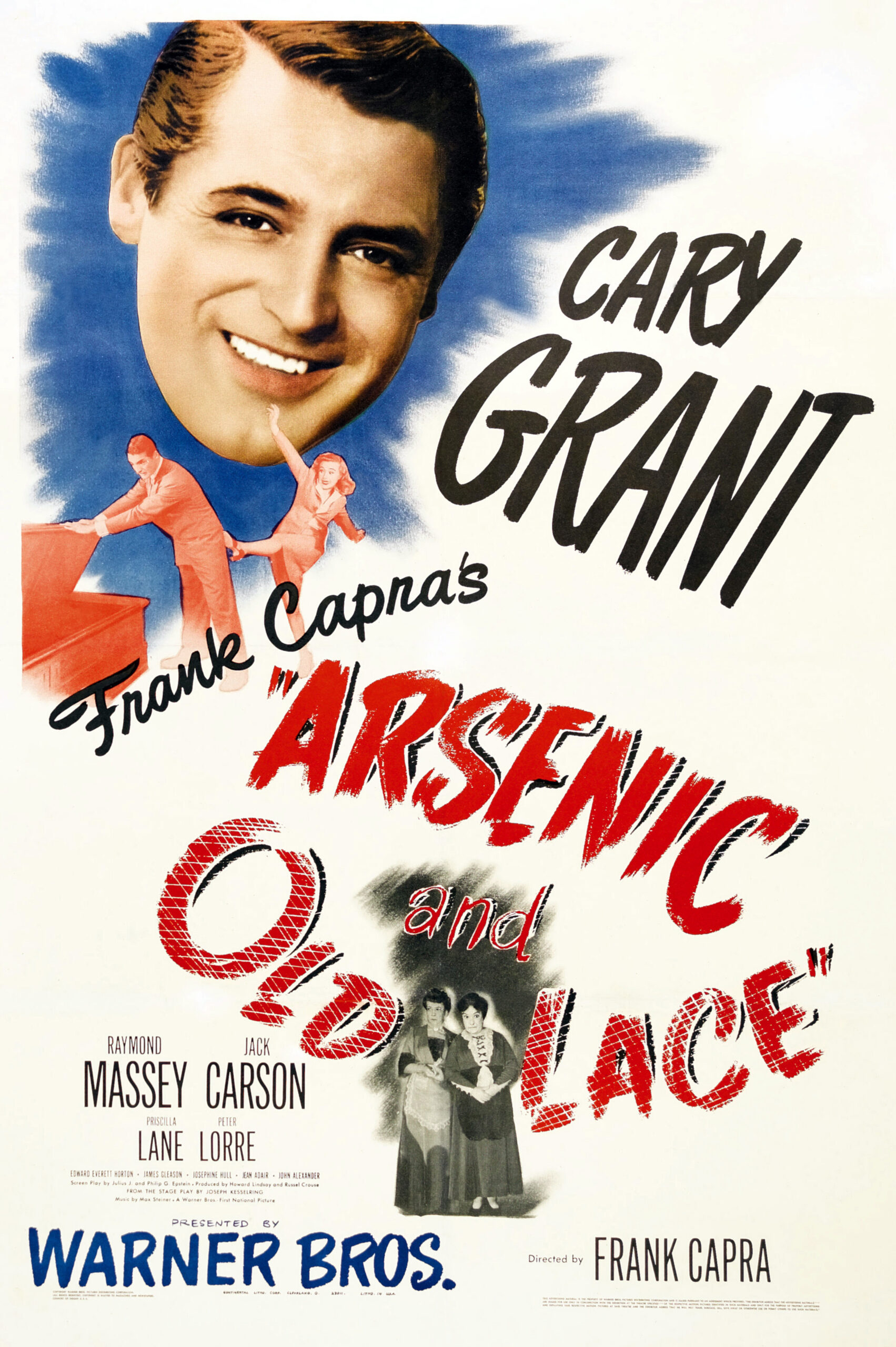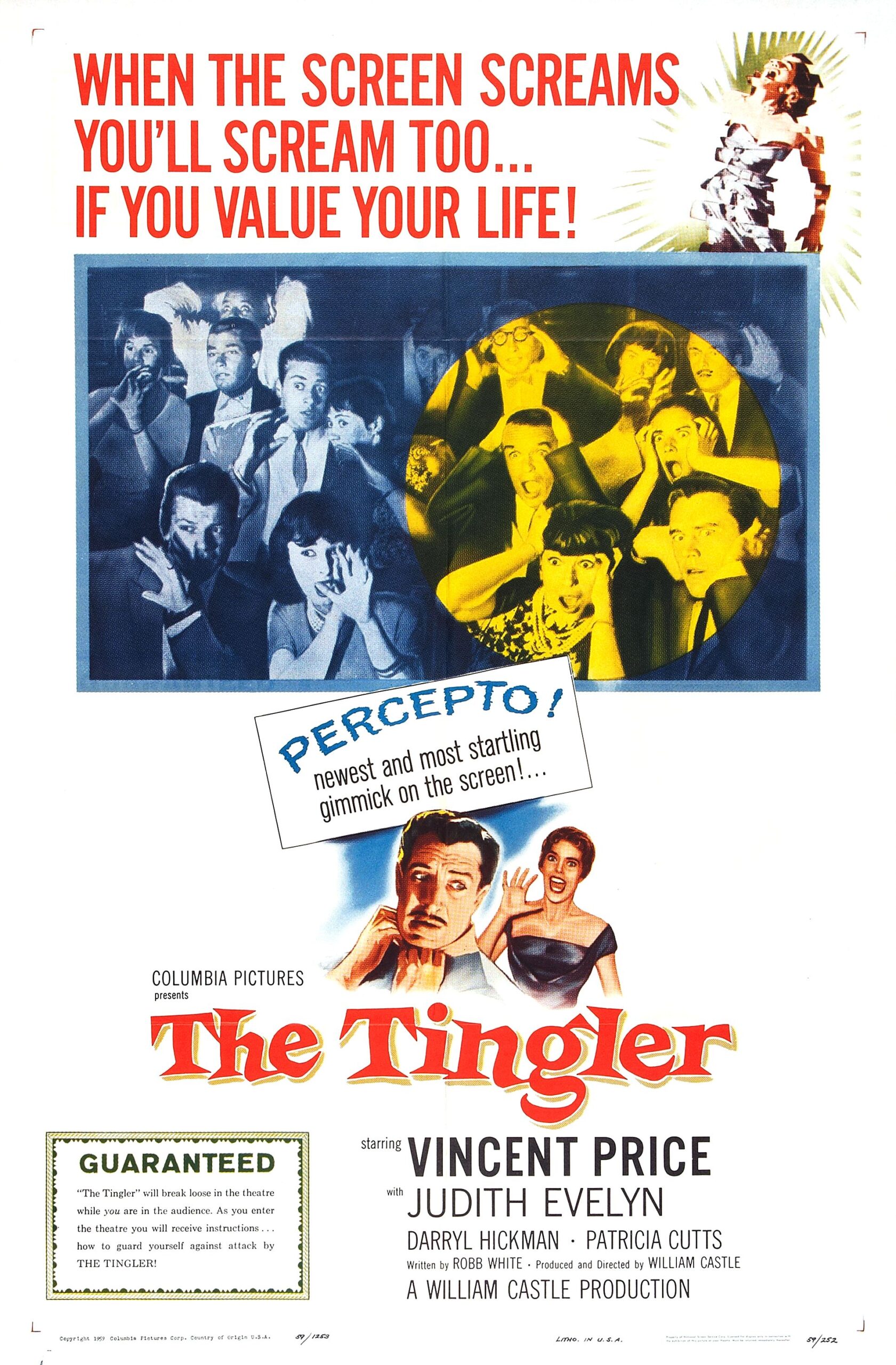Do you ever watch a movie and spend the entire time wondering what genre it’s supposed to be? Is it intended to be a comedy or a drama or a thriller or just what exactly? Usually, if you’re wondering that, so were the filmmakers. 1947’s Heaven Only Knows is one of those films.
It starts off as a wacky fantasy/comedy, morphs into a standard uninspired Western melodrama, and somehow ends up as a ponderous religious tract. The Archangel Michael is sent to a Montana town in 1887 to save a gambling hall owner who, through an accounting error up above, was born without a soul. The angel is mistaken for a famous outlaw there to murder the gambler. It’s not easy to know who to root for. The amoral gambler who heartlessly shoots folks in the street but quickly becomes the romantic lead? The beautiful schoolmarm who talks a vigilante crowd into hanging him, but, in the course of one scene, falls in love with him? The visitor from heaven who lets people die in the dust, never losing his perpetual, bemused smirk?
It’s a movie that’s occasionally funny early on, and the scene of the burning gambling den contains a few mild thrills. But so much time is spent in sanctimonious preaching and self-righteous moralizing the story becomes bogged down and tiresome, and much of what should be touching turns down-right laughable.
Originally released under the Heaven Only Knows title, audiences stayed away thinking it was a religious film (they were right). The producers sent some prints out renamed Montana Mike hoping to sell it to the Western crowd. I bet they were surprised.
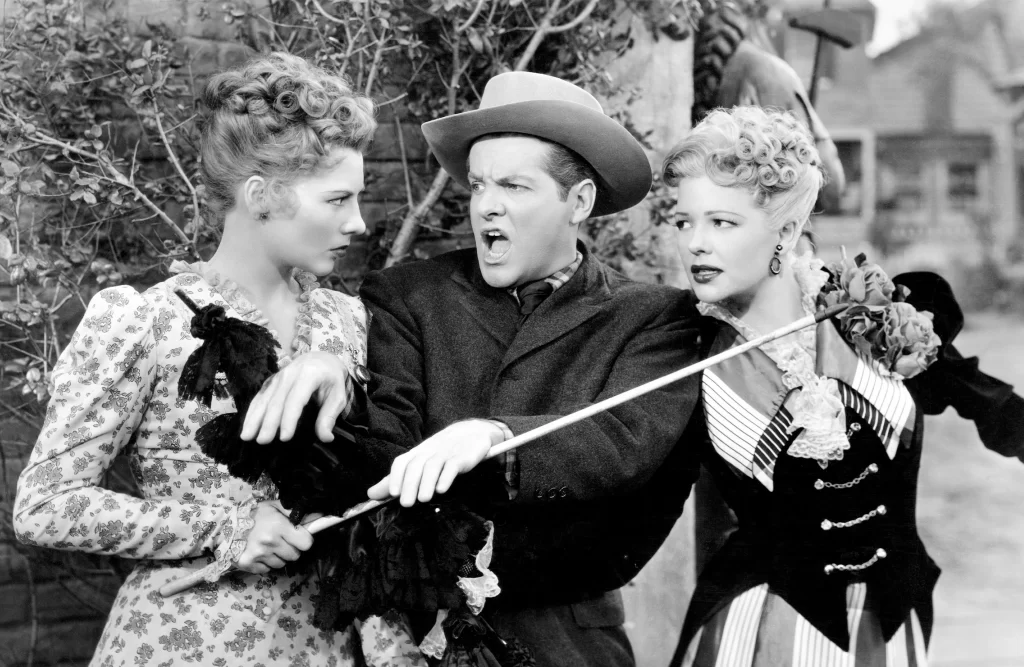
Is It Worth The Watch? The actors never find their footing, the director never controls the tone, the audience never becomes emotionally involved. What they were shooting for, heaven only knows (and it ain’t tellin’).
1947
98 minutes
Starring – Robert Cummings, Brian Donlevy, Jorja Curtright, Marjorie Reynolds, Bill Goodwin, Gerald Mohr, Edgar Kennedy, William Farnum
Director – Albert S. Rogell
Screenplay – Art Arthur, Rowland Leigh, Ernest Haycox
Source – an original story by Aubrey Wisberg
